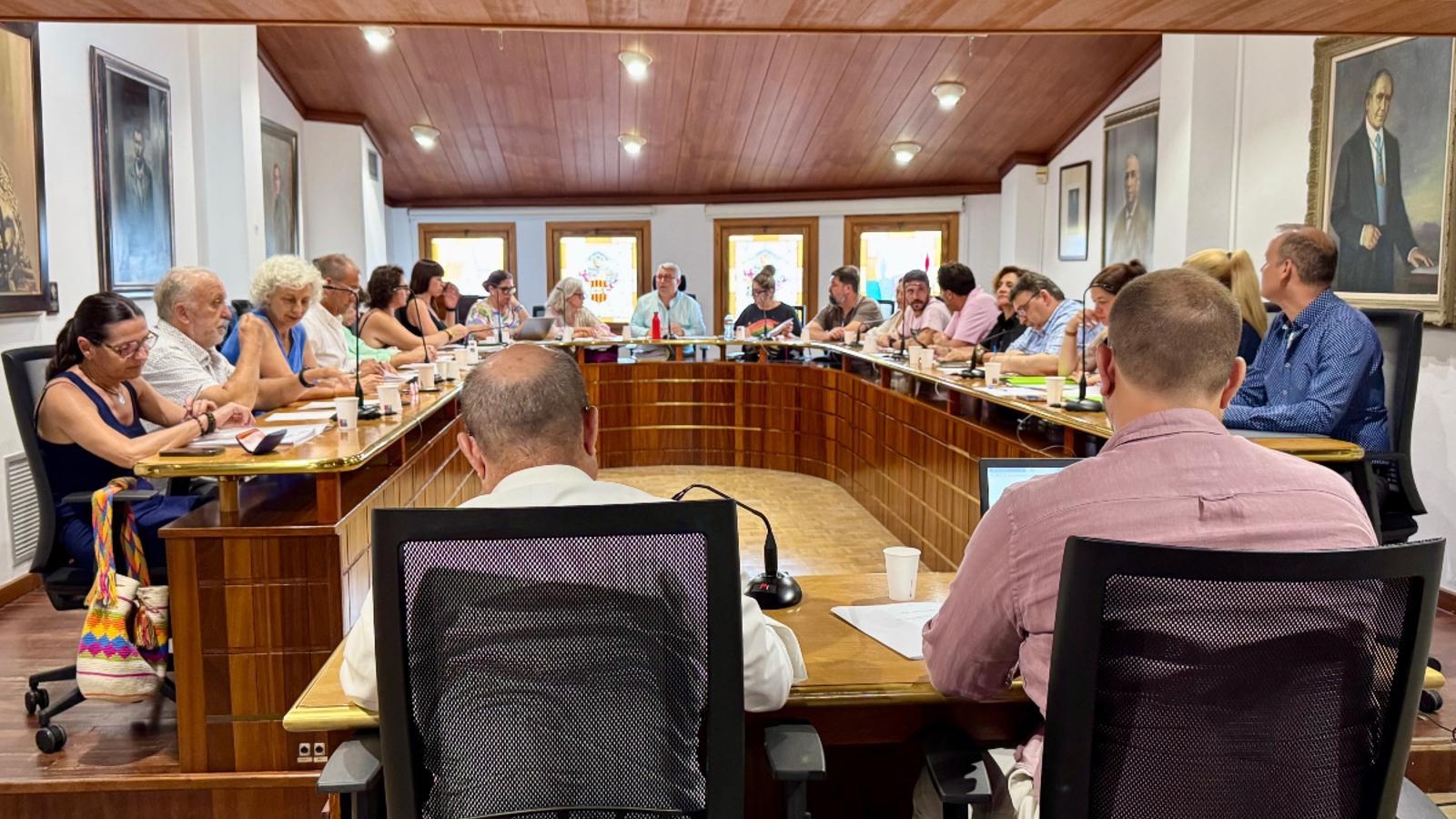Inca approves the democratic memory ordinance in the face of "the rise of the extreme right."
Alice Weber (MÁS for Inca) considers it a tool to guarantee "truth, justice, and reparation, especially in times of revisionism."

PalmThe Inca City Council plenary session approved this Thursday the public exhibition of the Municipal Ordinance on Democratic Memory, a regulation that establishes the lines of action to recognize and compensate the victims of Francoist repression, as well as preserve collective memory. This ordinance, promoted and led by MÉS for Inca, is an "important milestone in municipal memory policy," as it makes Inca one of the first municipalities in the Balearic Islands to have a specific and comprehensive regulatory instrument on this matter, explained the eco-sovereignty party.
The spokesperson for MÁS for Inca and Councilor for Democratic Memory, Alice Weber, highlighted the value of the initial approval of the text and emphasized the collective work that made it possible. "This ordinance is much more than a document: it is a tool to guarantee truth, justice, and reparation, but it is also the result of an exemplary participatory process, built through dialogue with memorial and human rights organizations," she stated. Weber wished to express special gratitude for the contributions made by organizations such as Amnesty International and Memoria de Mallorca, which have enriched the content of the final text.
The councilor also wanted to frame the approval of the ordinance in the current context: "We are facing a worrying resurgence of revisionist and far-right discourses, which trivialize or even deny Franco's repression. In this context, the approval of this ordinance sends a democratic message," Weber remarked.
Commitments
The approved text establishes a series of commitments that directly affect local public policies. Among others, it includes the removal of Francoist symbols, support for victims and their families, and the creation of memorial spaces. The City Council also commits to promoting educational and commemorative activities, preserving and digitizing historical archives, and facilitating institutional recognition of victims. All of this will be channeled through the future Municipal Council for Democratic Memory, a multi-participatory body with institutional, social, and memorial representation that will propose actions, validate the annual plan, and monitor the initiatives.
One of the most significant aspects of the text is that it explicitly recognizes the repressive role of Franco's regime in Inca and names some of the local victims of the Civil War and the dictatorship, such as Antoni Mateu Ferrer, Llorenç Beltran Salvà, and the Sancho Jorges brothers, among others. "A solid democracy cannot be built on forgetting. In Inca, we want to put names and stories to work where for too many years there has only been silence," Weber added.
The ordinance also declares Inca a city committed to democratic memory and opposed to all forms of dictatorship, which are explicitly condemned in the wording. It complies with both the state law on democratic memory and Balearic regional legislation, embracing the principles of truth, justice, reparation, and guarantees of non-repetition, as defined by the United Nations.
Public exhibition
With the initial approval, a period of public comment opens for citizens and organizations to make contributions before final approval. MÁS por Inca believes this step represents a decisive step forward in the institutional commitment to democratic memory and reaffirms the council's willingness to act responsibly, rigorously, and sensitively toward our recent history.
